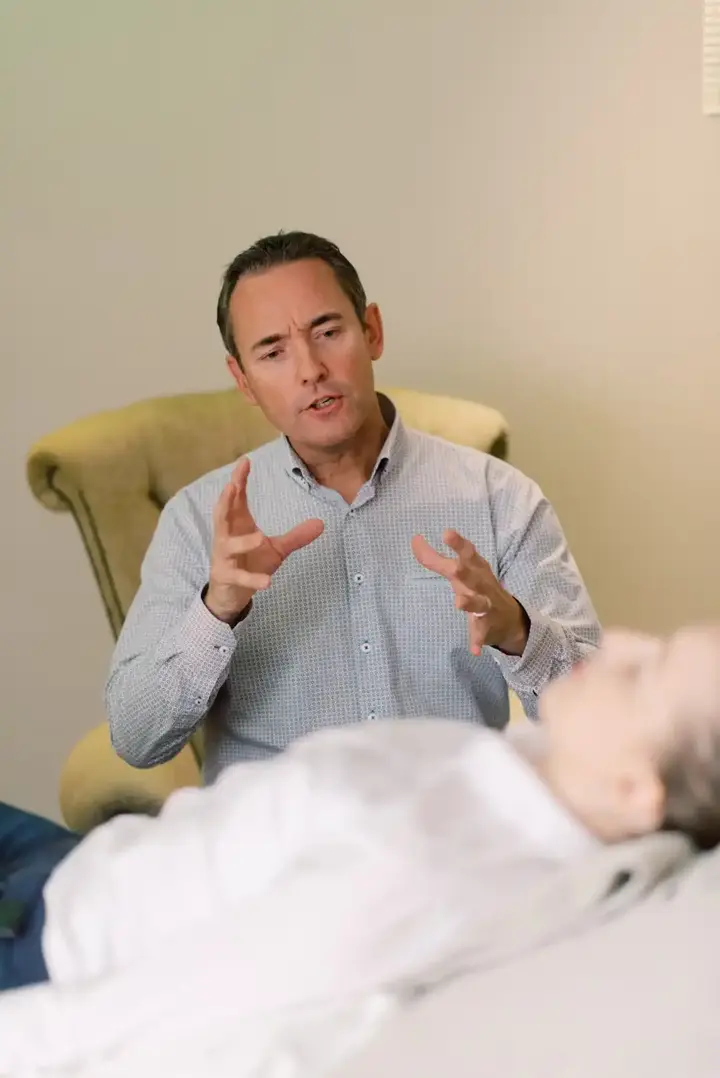Stress Reduce: Effective Techniques for a Stress-Free Life
In a world that is accelerating relentlessly, stress becomes an integral part of our daily lives, affecting our physical and mental health and quality of life. Stress, that hidden ghost that haunts the mind and body, can be devastating if left untreated. However, we do not have to accept this as an inevitable reality. There are multiple techniques and strategies that can help relieve stress and promote a stress-free life.
Show key points
- Stress is a natural response to life's challenges, but it can be harmful when it exceeds our ability to manage it.
- Prolonged stress may result in serious health issues such as heart disease, weakened immunity, and mental disorders.
- Techniques like meditation, mindfulness, and deep breathing are powerful tools for reducing stress and enhancing mental clarity.
- ADVERTISEMENT
- Engaging in regular physical activity boosts mood by releasing endorphins, which help combat stress naturally.
- A balanced lifestyle, including nutritious food, quality sleep, and effective time management, plays a crucial role in stress reduction.
- Emotional support from friends, family, or therapy can ease pressure and foster resilience against stress.
- Self-care practices like journaling, creative expression, and continuous learning can significantly contribute to personal growth and stress relief.
In this article, we'll explore some of these powerful technologies and provide a comprehensive overview of how we can apply them in our daily lives to achieve the balance and tranquility we seek.
What is stress?

Definition of stress and its causes:
Stress is the body's response to challenges or stress. It can be a catalyst for growth and development, but it can become devastating when it exceeds an individual's ability to cope with it. The causes are multiple and include work stress, interpersonal relationships, financial challenges, and major life changes.
Recommend
Common symptoms of stress:
Symptoms vary from person to person and include anxiety, fatigue, difficulty concentrating, changes in appetite, and sleep problems. Some may also experience physical symptoms such as headaches, muscle aches, and high blood pressure.
Long-term effects of stress on health:
If stress is not dealt with effectively, it can lead to serious health problems such as heart disease, diabetes, depression, and anxiety. It can also negatively affect the immune system, making the body more susceptible to diseases.
What are the most important techniques for managing stress?

Meditation and mindfulness:
Meditation and mindfulness are two of the most powerful tools for managing stress. Meditation helps calm the mind and promotes focus and clarity of mind. Mindfulness teaches us how to live in the present moment and accept our feelings without judgment or evaluation.
Deep breathing techniques:
Deep breathing is a simple but highly effective technique in reducing stress. Slow, regular breathing can help lower your heart rate and relieve stress in the body.
Physical activities and sports:
Regular physical activity has many benefits, including improving mood and reducing stress. Sport releases endorphins, which are brain chemicals that act as natural pain relievers and improve mood.
Image link
How to change your lifestyle to reduce stress?

The importance of proper nutrition:
Proper nutrition plays a vital role in managing stress. Eating nutrient-rich foods can improve brain function and reduce stress symptoms. Foods such as omega-3-rich fish, leafy greens, and nuts can help boost mental health.
The importance of good sleep:
Good sleep is essential for mental and physical recovery. Lack of sleep can lead to increased stress and reduce the body's ability to cope with stress. It is advisable to develop a regular sleep routine and avoid screens before bed to improve sleep quality.
Time management and prioritization:
Managing time effectively can reduce feelings of fatigue and stress. Prioritizing and organizing tasks helps avoid procrastination and creates a sense of control over daily life.
The importance of social and therapeutic support

The role of social support in relieving pressure:
Social support can have a significant positive impact on mental health. Positive relationships with friends and family provide a safety net that helps deal with stress. Participation in communities and group activities can provide support and reduce the feeling of isolation.
Psychotherapy and counseling:
Psychotherapy provides an opportunity to talk about challenges and feelings in a safe and supportive environment. Counseling can help develop new strategies for managing stress and improving mental health.
Self-treatment techniques and personal development:
Personal development and self-healing techniques such as exploratory writing, creative arts, and continuous learning can help boost self-confidence and reduce stress. These activities provide an outlet for self-expression and improve self-awareness.

At the end of our journey through stress pathways and mitigation techniques, we hope to have illuminated paths that the reader can follow to achieve a calmer and more balanced life. We explored the causes and symptoms, learned how to deal with stress through various techniques and lifestyle changes, and the importance of social and therapeutic support.
Stress may be part of life, but controlling it is within our capabilities. We encourage every reader to take effective steps towards well-being, and always remember that seeking help when needed is a sign of strength, not weakness. Let us all strive for a life free of stress, a life of tranquility and tranquility.








